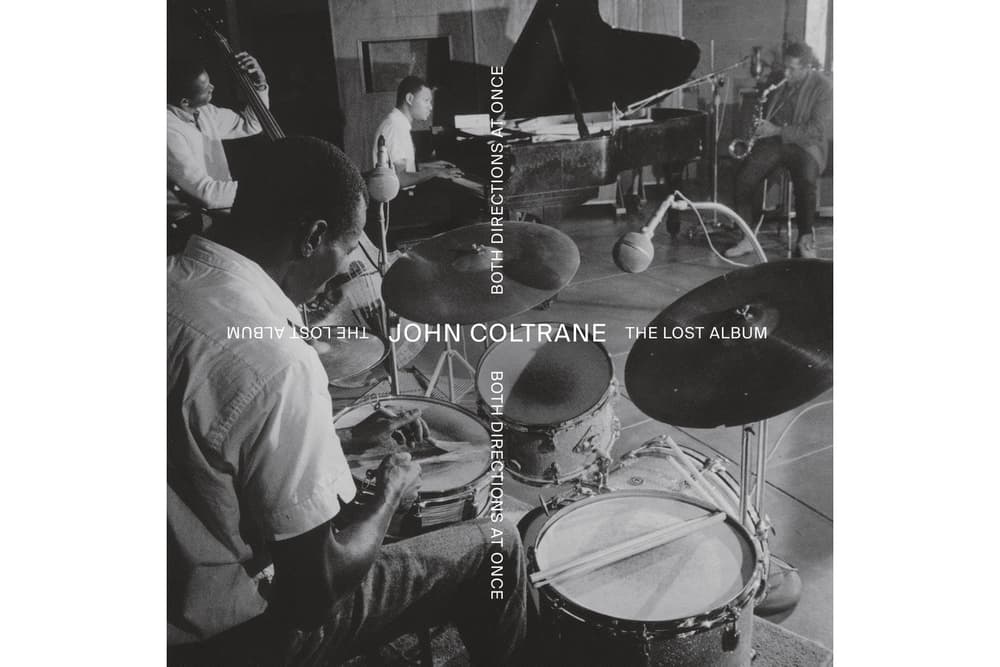Both Directions at Once
--John Coltrane
|
Incredibly, what comes to be full-length album of mostly new, previously unheard material from John Coltrane has emerged lo these many years since the man's passing, and it is masterful. What's mind-boggling is that after decades of posthumous Coltrane releases that were previously unheard versions of familiar material --I haven't done a precise count, but it occurs to me that there are enough live versions of Coltrane's disassembly and reconstruction of the Rodgers and Hammerstein show tune "My Favorite Things" to warrant a series critical comparison in how the saxophonist and his collaborators adjusted their improvisations gig to gig-- but rather something wholly fresh, new, with new compositions and ideas, recorded when this ensemble was at their peak. The story told as to why this album has surfaced on now comes from Wikipedia, which asserts that the band --Coltrane, McCoy Tyner, Jimmy Garrison and Elvin Jones-- entered Impulse Records studio in 1963 to lay down the master tape of an album of new material for eventual release. Somewhere in the lapse between that recording and its 2018 release, the original tape was destroyed when the label decided to cut down on expenses regarding storage; what we have here is from a copy of the tape Coltrane had given to his wife. It's not useful to dwell on the reasons for the delay and best, I think, to appreciate how profound this gift of music happens to be.Both Directions at Once, the title, comes from a discussion Coltrane once had with Wayne Shorter at some point, in which had come up the idea of starting their solos in the middle and working their ideas backwards, toward a calmer section that would have been the casual, tentative build up, and then the other way, toward greater fluency, acceleration, intensity from the tenor saxophone's horn, going "both directions at once." You get what they were talking about in mere minutes; Coltrane's playing is serpentine and advances effortlessly through the registers with rail-splitting chromaticism. He darts, dodges, telegraphs and races along melodic lines he creates on initial choruses and subsequently rethinks and rewrites with each return to the song's head; ideas brawl, embrace and interweave in swift, howling glory. The improvisations are as fine, searching and soulful as anything he released in his lifetime. On hand were the members of his Great Quartet, Elvin Jones on drums, McCoy Tyner on piano and Jimmy Garrison on bass. This is a quartet that has weathered time, circumstance and hundreds of hours playing together, with the sinewy yet agile poly-rhythms of the ever-brilliant Jones and the no less masterful Garrison buoying and propelling Tyner's color-rich harmonies and Coltrane's thick, sonic weaves. There is nothing tentative about his disc. It's quite a bit of music from this epoch-defining unit, and there is, of course, nothing better than coming across Coltrane you've haven't bared witness to yet.



